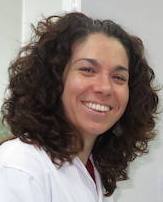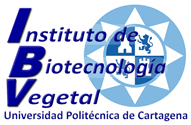Unidades de Investigación / Research Groups

UNIDAD DE ECOLOGÍA Y BIOTECNOLOGÍA DE SUELOS / SOIL ECOLOGY AND BIOTECHNOLOGY
La Unidad de Ecología y Biotecnología de Suelos estudia las relaciones que se establecen entre diferentes propiedades físicas y químicas del suelo y la funcionalidad de éste, los factores ambientales y la biodiversidad y actividad de organismos y microorganismos edáficos mediante técnicas bioquímicas y moleculares. Las principales líneas de investigación, se centran en:
Agroambientales/agroecosistemas
• Vincular la biodiversidad del suelo y las funciones y servicios de los ecosistemas para la producción sostenible
• Identificación de organismos clave del suelo involucrados en servicios ecosistémicos clave.
• Evaluación de la salud del suelo en términos de gestión en usos del suelo agrícola y forestal.
• Alternativas agroecológicas a los pesticidas para mejorar la salud del suelo y los servicios ecosistémicos.
Impactos ambientales de la minería en los ecosistemas
• Fitomanejo de suelos contaminados por metales.
• Biogeoquímica, funcionalidad y ecotoxicidad de suelos contaminados con metales en una perspectiva del calentamiento global.
• Sistemas hídricos y soluciones basadas en la naturaleza para combatir la eutrofización y la contaminación por metales
• Gestión forestal desde una perspectiva del calentamiento global
Responsable:
..jpg) |
•Prof. Dr. Héctor Miguel Conesa Alcaraz |
|---|
__________________________________________________________________________________________________
Investigadores:
.jpg) |
.jpg) |
.jpg) |
 |
__________________________________________________________________________________________________
Investigadores Postdoctorales:
• Melisa Gómez
• Eva Lloret
• Virginia Sánchez
• Nazaret González
• Angélica Terrero
• Alicia Morugán
Doctorandos y Estudiantes de Master:
• Matías Ceacero Moreno
• Elena Samper Pérez
• Irene Ollio
• Cristina García Hernández
• Ximena Katherine Capa
• Juan Carlos Beltrá
• José Gregorio Cuevas
• Mohamed Mdaini
• Onurcan Ozbolat
• Mariano Marcos.
Publicaciones seleccionadas:
• V. Sánchez-Navarro, R. Zornoza, A. Faz, C. Egea-Gilabert, M. Ros, J.A. Pascual, J. A. Fernández. 2020. Inoculation with different nitrogen-fixing bacteria and arbuscular mycorrhiza affects grain protein content and nodule bacterial communities of a fava bean crop. Agronomy 10, 768.
• Risueño, Y., Petri, C., Conesa H.M. 2020. The importance of edaphic niches functionality for the sustainability of phytomanagement in semiarid mining impacted ecosystems. J. Environ. Management. 266:110613.
• Álvarez-Rogel, J., Barberá, G.G., Maxwell, B., Guerrero-Brotons, M., Díaz-García, C., Martínez-Sánchez, J.J., Sallent, A., Martínez-Ródenas, J., González-Alcaraz, M.N., Jiménez-Cárceles, F.J., Tercero, M.C., Gómez, R. 2020. The case of Mar Menor eutrophication: state of the art and description of tested nature based solutions. Ecological Engineering 158, 106086.
• Párraga-Aguado, I., Querejeta, J.I., González-Alcaraz, M.N., Jiménez-Cárceles, F.J., Conesa, H.M. 2014. Elemental and stable isotope composition of Pinus halepensis foliage along a metal(loid) polluted gradient: implications for phytomanagement of mine tailings in semiarid areas. Plant and Soil, 379: 93-107.
• Barmentlo, S.H., van Gestel, C.A.M., Álvarez-Rogel J., González-Alcaraz MN. 2017. Influence of climate change on the multi-generation toxicity to Enchytraeus crypticus of soils polluted by metal/metalloid mining wastes. Environmental Pollution. Link.
• Párraga-Aguado, I., Querejeta, J.I., González-Alcaraz, M.N., Conesa, H.M. 2014. Metal(loid) allocation and nutrient retranslocation in Pinus halepensis trees growing on semiarid mine tailings. Science of the Total Environment. 485-486:406-414
Proyectos vigentes:
• Sustainability for the phytomanagement of mining polluted soil: an ecophysiological and microbiological approach (CGL2017-82264-R). MINECO. 2018-2020. Principal investigator: Héctor Conesa.
• Functionality and resilience of soils polluted by mining wastes under climate change conditons in mediterranean environments: ecotoxicological aspects and the use biochar for remediation (CGL2016-80981-R). MINECO. 2017- 2019. Principal investigator: José Ao lvarez Rogel.
• Soil metal-pollution in a global warming perspective: ecotoxicological and functional aspects, CLIMTOXFUN - (21127/SF/19). 06/20-05/23. Séneca Foundation-Murcia Region, Saavedra Fajardo Research Contract. Principal researcher: M. Nazaret González Alcaraz.
• Crop diversification and low-input farming across Europe: from practitioners’ engagement and ecosystems services to increased revenues and value chain organisation
• Diverfarming. GA 728003. H2020. Europ. Comm. 2017-22. Principal investigator: Raú l Zornoza.
• Soil biodiversity enhancement in European agroecosystems to promote their stability and resilience by external inputs reduction and crop performance increase. SoilDiverAgro GA 817819. H2020. Europ. Comm. 2019-2024. Principal investigator: Raú l Zornoza.





